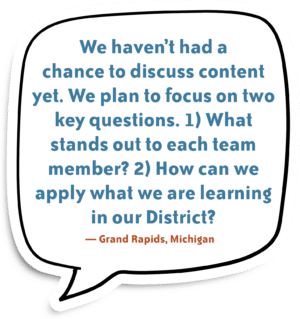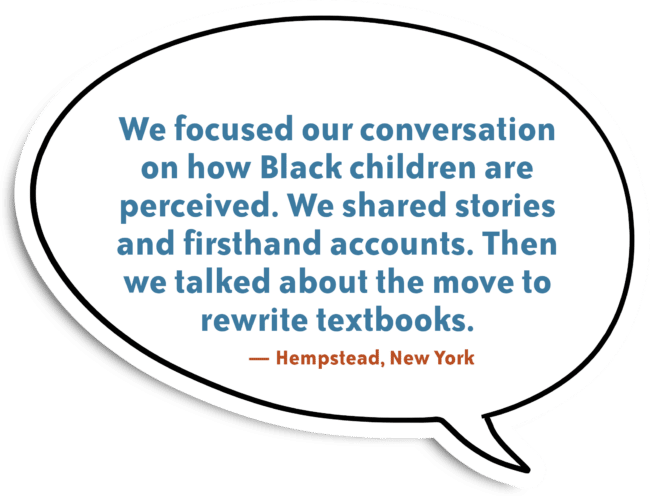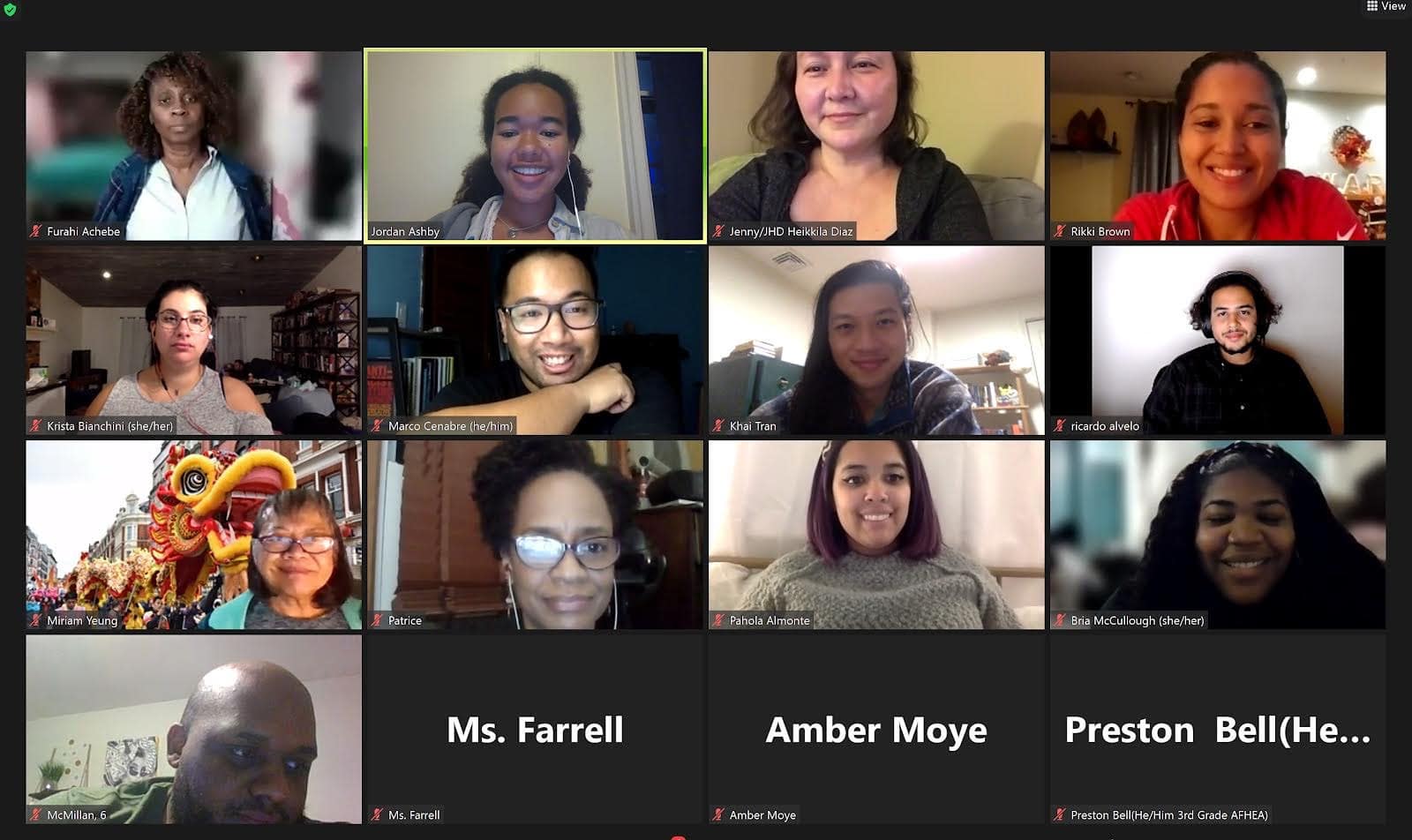Below you will find selected updates and snapshots from Teaching for Black Lives study group coordinators and hear from members about what they’ve been taking away from the Teaching for Black Lives workshops and classes.
20 EdCo Ts joined 100s from all over the country to start our study group with @ZinnEdProject. Grateful for the support of @RethinkSchools & the commitment of the teachers of EdCo working on behalf of our students in ALL settings. @JessedHagopian @LadyOfSardines@teachingchange pic.twitter.com/JBo9mCBI9K
— EducatorsCooperative (@Ed_Cooperative) October 5, 2021
LT was selected to participate in a National book study using Teaching for Black Lives-Study groups are gathering all across the country and the Zinn Education Project is providing resources to support this work. So proud of our amazing educators & love how they are all in! pic.twitter.com/BduEYJ8kDS
— Dr. Jennifer Rowe (@LTEquity204) November 9, 2021
Meeting Reports
Here are excerpts from the study group coordinator surveys about how each group is getting started.
— Lansing, Michigan



New Haven, Connecticut

